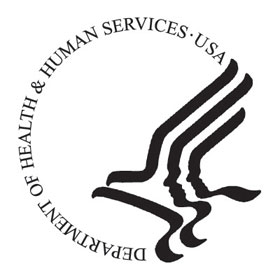Citing “policy and operational challenges” with the current 340B Administrative Dispute Resolution (ADR) Process, the US Department of Health and Human Services (HHS) has issued a new Proposed Rule to modify the current ADR Process. The Proposed Rule would materially simplify and speed up the ADR Process but leaves open questions as to the specific nature and scope of disputes that can be brought to the ADR Panel for review. Further, like the current ADR Process, the proposed process will likely only serve as the starting point of a formal litigation process to resolve disputes between 340B Covered Entities and drug manufacturers.
More on Proposal
According to HHS statements in the preamble to the new Proposed Rule, the proposed ADR Process would differ from the current ADR Process in several key ways. First, it will remove the requirements to follow the Federal Rules of Evidence and Rules of Civil Procedure. Second, it will limit the ADR Panel members to 340B subject matter experts from the Office of Pharmacy Affairs. Third, it will require all parties to engage in good-faith dispute resolution efforts before initiating the ADR process. Fourth, it limits claims to disputes involving overcharges, duplicate discounts and diversion. Fifth, it establishes a reconsideration process for ADR Panel decisions.
In addition to these explicitly cited differences, other material differences include that the new Proposed Rule would remove the monetary threshold on claims before the ADR Panel, would suspend claims brought to the ADR Panel if the claim involves the same or similar issues pending in Federal court, and would no longer make the ADR Panel decisions precedential.
The new Proposed Rule responds to the primary challenge to the current ADR Process, which is that it was established in a manner that allegedly violates the Administrative Procedure Act. Specifically, both 340B Covered Entities and drug manufacturers have sued HHS claiming that the final rule establishing the ADR Process did not follow proper notice and comment rulemaking and was based on a proposed rule that HHS had previously withdrawn.
The Proposed Rule also appears to address certain other criticisms that have been raised about the current ADR process. Notably, the Proposed Rule explicitly provides that claims would be suspended if they involve the same or similar issues pending in federal court. This proposed change is almost certainly a response to the filing of ADR claims by 340B Covered Entities alleging drug manufacturer overcharges stemming from restrictions placed on 340B purchasing for drugs dispensed through contract pharmacies, while the drug manufacturers have argued in federal court that those restrictions are legal. Although the ADR Panel initially accepted these disputes for review and the parties spent more than a year working through the ADR process, the claims were recently dismissed due to the ongoing litigation. Under the Proposed Rule, these claims would have been suspended upon filing for the duration of the litigation.
Furthermore, the Proposed Rule would add an administrative appeals process that is not present in the current rule. The Proposed Rule would allow for either party to an ADR Panel to request a reconsideration of the decision by the HRSA Administrator (or their designee), as well as the option for the HRSA Administrator to initiate such a reconsideration review without a request from either party. Although the Proposed Rule includes a provision that would allow the HRSA Administrator to consult with HHS staff, as needed, during the reconsideration process, much like the change to make the ADR Panel comprised of entirely OPA staff, the proposed reconsideration process appears to retain HRSA control over the outcome of the decisions.

